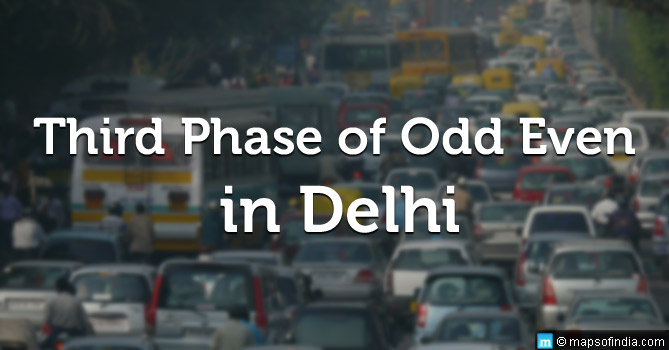The national capital chokes again. A dark, heavy blanket of smog descends over Delhi and neighbouring regions and despite the ban on the sale of crackers this Diwali, residents of NCR are forced to breathe toxic fumes that will inevitably reduce their lifespans. Through this week pictures and news reports of thick smog, low visibility, and crippled life in the national capital kept surfacing. The AAP-led state administration seemed keen to blame non-cooperation of the centre for the capital’s misery and the central government seemed to have moved Himachal Pradesh and Gujarat where the state assembly poll campaigns were in full swing. Amidst such important issues no one seemed interested in telling the Indian farmer that his annual stubble burning exercise was killing millions in NCR.
Delhi’s Worsening Air Pollution Scenario
By Tuesday, 7 November, 2017, the phrase “Public Health Emergency” started to resound across the national capital region (NCR). Air pollution, particularly in the winter months, is not new to Delhi. The Air Quality Index (AQI) readings of the capital, however, hit new levels and schools and construction sites had to be shut down. By the following day PM 2.5 levels (levels of tiny particulate matter which is considered to be a deadly air pollutant) shot up to about 726. Some areas even recorded PM 2.5 levels between 830 and 930.
These are merely numbers till we put them in the context of World Health Organisation’s (WHO) permissible limits. WHO pegs ideal PM 2.5 limits at 10 and considers anything under 50 acceptable. Beyond 300 the PM 2.5 levels become “hazardous” says the WHO. So Delhi air is about three times this threshold now.
Odd Even Again
By Thursday, the air pollution levels had led to a near panic situation in the capital and the AAP government decided to reinstate the odd-even car rationing rule (that had previously been in place in the state) from Monday 13 November to Friday 17 November. This scheme allows for cars with odd number plates (ending 1,3,5,7, and 9) to ply on November 13, 15, and 17 and those with even numbers (ending 0,2,4,6, and 8) on the remaining days of the period. Certain exceptions would be made. Women driving cars, for example, were exempt from following this scheme. The AAP administration approached the National Green Tribunal (NGT) which has been arbitrating pollution related issues in the capital with its plans.
Yesterday, Delhi government faced the rap as the Justice Swatanter Kumar led NGT asking it why advance preventive measures had not been put in place despite a steadily worsening air pollution scenario. The NGT also asked the Delhi government to furnish evidence in support of the effectiveness of the odd-even scheme in controlling air pollution.
The NGT bench was scathing in its criticism of Delhi CM Arvind Kejriwal and the AAP administration. It said, “You are getting the tag of the worst capital in the world. The Supreme Court and NGT have suggested hundred measures to curb pollution, but you always opt only for odd-even. Nothing has been done by the Delhi government in the past one year.” The Central Pollution Control Board (CPCB) submitted to the tribunal that it had warned the Delhi government of the alarming rise in air pollution in the city. The NGT also chastised the government over lapses in fining and policing pollution and traffic regulations violators and exorbitant hikes in parking fees.
Despite this, the NGT finally agreed to give the odd-even scheme a go ahead today. The NGT, however, refused to make the exemptions that the Delhi government had sought. One of the main exemptions that the NGT turned down was allowing all two-wheelers to ply on all days. The CPCB holds that’s two wheelers cause more pollution than four wheelers. “If you are removing 500 cars from roads and allowing 1,000 two wheelers… what purpose it will serve?“, asked the bench. The green tribunal also refused to make exemptions for women and CNG driven cars.
AAP Withdraws Odd-Even
Even as the NGT granted the AAP led state government its request to implement the odd-even car rationing scheme albeit without the exceptions sought, the Delhi administration withdrew its intentions. The odd-even car scheme will no longer be implemented. The government said that without the exceptions the public transport system of Delhi will find it impossible to cater to the city’s needs and women’s safety would be jeopardized. The government said it would approach the NGT again in a few days with an appeal to implement the odd-even scheme with the necessary exeptions.






